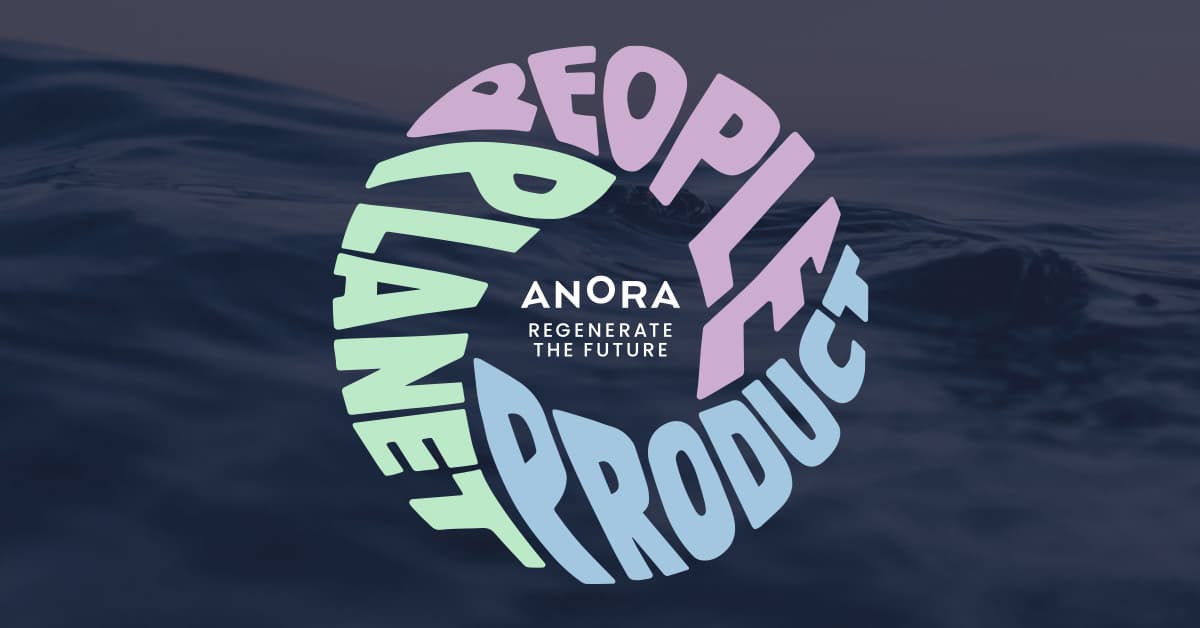
11.01.2023 - 14:35
Anora’s new sustainability roadmap: growth through sustainability
Anora’s vision is to be the leading Nordic wine and spirits group, delivering growth through sustainability. To help achieve this goal the company launched a new and ambitious sustainability roadmap reaching until 2030.
“Sustainability is at the heart of our strategy and central to the production of all our grain-based spirits. We have built our new roadmap on our truly unique platform in which we have been investing for over a decade – our Koskenkorva distillery with its own biopower plant, almost 100% recycling and reuse rate and an already 60% decrease in CO₂ emissions. Our new roadmap is called “Regenerate the Future.” This refers to regenerative farming, regenerating the conditions of our planet, but also regenerating ourselves and our operations as well as supporting responsible Nordic drinking culture the coming decades with the aim of building sustainable, future-proof business,” says Petra Gräsbeck, Communications and Sustainability Director at Anora.
Anora’s four primary long-term sustainability targets are:
Setting science-based targets: commit to achieving a 38% reduction in total emissions by 2030 and to being net-zero by 2050.
Achieving carbon-neutral operations at Koskenkorva distillery by 2026 and carbon-neutral production throughout all operations by 2030 – without carbon compensations.
Investing in regenerative farming and increasing the share of regeneratively cultivated barley as the raw material of Anora’s own grain spirit-based products to 30% by 2030.
Leading in climate-smart packaging: all packaging will be lightweight, 100% recyclable and made of materials from certified sources or from recycled origin by 2030.
As part of this comprehensive and far-reaching roadmap, Anora has also taken into consideration the tightening legislative environment regarding sustainability, as well as the increasing sustainability demands of its customers and partners. Anora’s partners include the Nordic monopolies which have been driving sustainability for many years and are committed to decrease their emissions by 50% by 2030. Anora is a critical part of their value chain, and the company will support them in achieving their targets through the implementation of the 2030 Sustainability Roadmap.
The roadmap to reducing emissions
To achieve these ambitious targets, Anora’s 2022 commitment to set science-based targets will now include a near-term 2030 emissions reduction target of 38% and the alignment of its business to meet the goals of the Paris Agreement and to pursue efforts to limit global warming to 1.5°C. This emissions reduction target will cover emissions in Scopes 1-3 which includes the company’s global value chain. The long-term target is to achieve net-zero emissions by 2050.
Among the many initiatives required to achieve carbon-neutral operations by 2030 without carbon compensations are two key milestones, which Anora is already on its way to reaching. In the beginning of 2023, all electricity required to power Anora’s operations in Finland will be produced from 100% renewable sources, wind power included. Additionally, Anora will continue the pioneering sustainability work at its award-winning Koskenkorva distillery, which operates on the principles of the circular economy and has already achieved a 60% cut in emissions since 2014. By replacing the distillery’s remaining fossil fuel-fired steam boiler with a state-of-the-art zero-emissions biomass bioboiler, Anora will be able to reach zero fossil-derived emissions in its own operations at the distillery by 2026.
Investing in regenerative farming
Regenerative farming is a method which aims to sequester carbon dioxide into the soil, rather than releasing it into the atmosphere. Anora will be significantly strengthening its focus on regenerative farming from 2023 onwards and increase the share of regeneratively cultivated barley as the raw material of its own grain spirit-based products to 30% by 2030. Anora is working in close collaboration with the farmers and offers training on regenerative farming. Anora purchases over 200 million kilograms of barley in Finland annually and the company believes that both investments and advances in regenerative farming will make a significant difference in emissions resulting from barley farming.
Developing climate-smart packaging
Anora is the leader in the Nordic wine and spirits sector in climate-smart packaging. At present, over 60% of its own product’s packaging is classed as climate-smart and 40% is glass. The climate-smart packaging products for different consumer occasions are Bag-in-Boxes, tetras, cans, PET plastic and rPET (recycled PET plastic) bottles, which collectively have a CO₂ footprint 60-90% lower than that of glass bottles. By 2030, Anora’s target is for all its climate-smart product packaging to be lightweight, 100% recyclable and made of materials from certified sources or from recycled origin. Also worthy of note in the 2030 Sustainability Roadmap is the impact of near-market filling: bag-in-boxes or bottles filled closer to the end markets enables Anora to significantly reduce the CO₂ emissions of its wine products.
In addition, Anora will continue to support a responsible drinking culture throughout the countries where its products are available. To achieve this, the company will also continue to develop and release to the market a broad range of non and low-alcoholic drinks.
Strengthening people and partnerships
Anora will continue to promote a fair, safe, and inclusive workplace and global value chain, as well as focus on human rights as a specific subject. In its own production, the company has been building a strong safety culture for many years and this will be refined and strengthened on the road towards 2030. Anora will also continue to ensure that it further enhances its diversity, equity and inclusion (DEI) efforts throughout its operations as part of the Roadmap.
Anora does not work alone in its sustainability efforts. The company has strong partnerships that encompass environmental, social and governance criteria in every area of the 2030 Sustainability Roadmap. Regarding the environment, for example, Anora works closely with the Baltic Sea Action Group (BSAG) in promoting regenerative farming, with amfori BSCI in sustainable sourcing and value chain, and is a support member of the UN Global Compact. In 2022 Anora also joined the Science Based Targets initiative (SBTi) in order to set the optimal ambition levels for emissions reduction targets across all scopes.
Securing future biodiversity
Finally, as part of the 2030 Sustainability Roadmap, Anora will conduct a comprehensive biodiversity assessment and create a plan to further enhance its efforts in this area. Biodiversity is critical for all life on earth, and strongly supports climate change mitigation. Anora’s three focus areas in sustaining and improving biodiversity are:
Barley: regenerative farming methods help to support biodiversity
Wine farming: regenerative farming methods help mitigate species loss in wine growing areas
Own forest area: Anora owns an area of forest equivalent to around 1,500 football fields in size, which binds over 800,000 tons of CO₂. The new forest management plan will also help enhance biodiversity throughout these forests for generations to come.
Video on Anora's new sustainability roadmap: https://youtu.be/lm-LX1C3UDM
